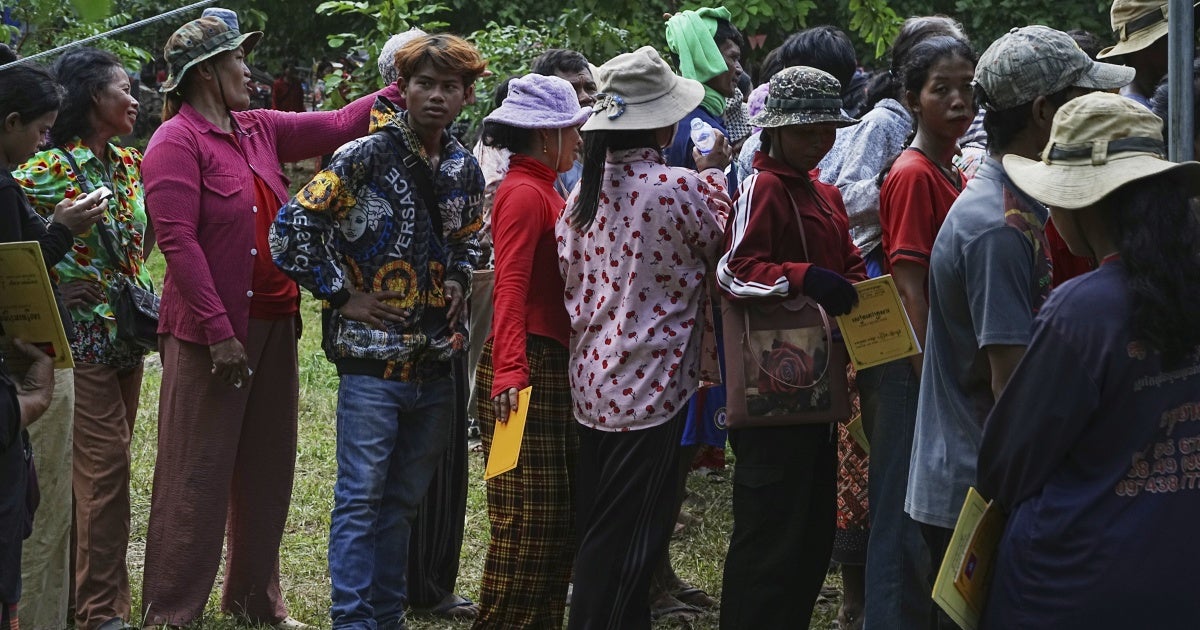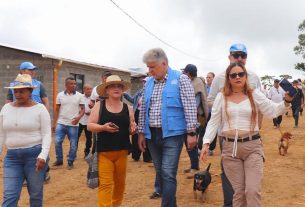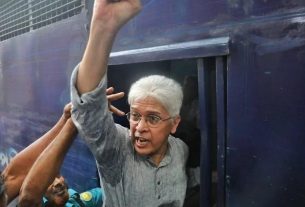(Bangkok) – Escalating border clashes between Thailand and Cambodia involving explosive weapons have killed and injured civilians since fighting began on July 24, 2025, Human Rights Watch said today. The two countries have longstanding border disputes, but there has been no serious military engagement since 2011.
Cambodia and Thailand have each accused the other of starting the fighting. The Thai Armed Forces headquarters issued a statement on July 24 that clashes began at a Thai military position near the contested Ta Muen Thom Temple in Surin province around 8:20 a.m.
The United Nations Security Council and concerned governments should press the Thai and Cambodian governments to abide by international humanitarian law and take all necessary steps to protect civilians threatened by the fighting.
“In just two days of fighting, clashes along the Cambodian-Thai border have killed and injured civilians, including children, and damaged medical facilities and religious and cultural sites,” said John Sifton, Asia advocacy director at Human Rights Watch. “Thai and Cambodian authorities should take all steps necessary to protect civilians and civilian infrastructure as required by international humanitarian law.”
On July 25, Thailand’s Public Health Ministry stated that 14 civilians, including children ages 15 and 8, had been killed and 31 wounded by Cambodian rocket and artillery attacks that hit a hospital, a supermarket, and houses. Thai authorities have evacuated over 100,000 people from border areas and closed at least 852 schools and 7 hospitals for safety reasons.
The Cambodian government has not released any information on casualties, but the spokesperson for the border province of Oddar Meanchey said on July 25 that “so far one civilian was killed and five people were injured during fighting” in the province.
Human Rights Watch geolocated three photographs posted on social media from a drone camera feed showing structural damage to a building and a Buddhist pagoda in Oddar Meanchey’s Kok Mon commune. A Cambodian official in Oddar Meanchey told the media that a man was killed on July 24 after a Thai rocket hit a pagoda where he was seeking safety.
The fighting quickly escalated on July 24 and spread to other areas in Surin, Ubon Ratchathani, Si Sa Ket, and Buriram provinces in Thailand and Preah Vihear and Oddar Meanchey provinces in Cambodia. In addition to rocket and artillery attacks by Cambodian forces, the Thai armed forces deployed F-16 jets and drones to launch airstrikes along with artillery and rocket fire.
Cambodian government agencies have alleged that Thai airstrikes and artillery fire had damaged the UNESCO World Heritage site of Preah Vihear Temple in Cambodia and also claimed Thailand was using internationally prohibited cluster munitions. The Thai Armed Forces Headquarters initially denied these claims, but later on July 25 a Royal Thai Army press release and Thai military spokesperson clarified that the Thai armed forces used cluster munitions when necessary to target military objectives and when adhering to the legal principle of proportionality.
Neither Thailand nor Cambodia are parties to the Convention on Cluster Munitions, which bans all use, but Human Rights Watch considers any use of the weapon in populated areas to be unlawfully indiscriminate. Thailand last used cluster munitions during a border dispute with Cambodia in February 2011.
Human Rights Watch urged Thailand and Cambodia not to use cluster munitions and to ratify the Convention on Cluster Munitions, which currently has 111 states parties.
International humanitarian law, or the laws of war, is applicable to the international armed conflict between Cambodia and Thailand. The laws of war obligate parties to a conflict to distinguish between combatants and civilians at all times. Civilians may never be the deliberate target of attacks. Warring parties are required to take all feasible precautions to minimize harm to civilians and civilian objects.
Attacks targeting civilians, that fail to discriminate between combatants and civilians, or are expected to cause disproportionate harm to civilians compared to the anticipated military gain are prohibited.
Using explosive weapons with wide area effects in populated areas poses a grave threat to civilians given the weapons’ inherent inaccuracy, large blast radius, and rapid delivery of multiple munitions at the same time. When used in villages, towns, and cities, explosive weapons cause immediate harm to civilians and civilian structures. Reverberating, or long-term, effects include damage to buildings and critical infrastructure that interferes with services such as health care and education.
Explosive weapons also cause displacement of the population and destroy cultural heritage and the environment. Both Cambodia and Thailand have endorsed the 2022 political declaration committing to adopt and implement national policies and practices to help avoid and address civilian harm, including by restricting or refraining from the use of explosive weapons in populated areas.
In addition, in two separate incidents on July 16 and 23, antipersonnel landmines apparently injured Thai soldiers who were patrolling in a disputed border area. After the first incident, Thailand alleged that Cambodian forces had recently emplaced the antipersonnel mines in Thai territory. Cambodia has denied these allegations.
Thailand and Cambodia have ratified the 1997 Mine Ban Treaty, which comprehensively prohibits any production, transfer, stockpiling, or use of antipersonnel mines. Under the treaty, states are obligated to prevent and suppress any noncompliance, including by taking measures to prosecute and punish those responsible for use of antipersonnel mines on their territory. Cambodia and Thailand should engage with Japan—whose disarmament representative in Geneva, Ambassador Tomiko Ichikawa, is currently serving as president of the Mine Ban Treaty—to activate the treaty’s “cooperative compliance” procedures.
In response to Cambodia’s request, the UN Security Council will convene an urgent meeting on July 25 to discuss the Thailand and Cambodia border clashes.
“Neither Thailand nor Cambodia appears to be paying attention to international humanitarian law at great expense to civilians,” Sifton said. “Diplomatic efforts underway need to prioritize protecting civilians and civilian infrastructure.”



